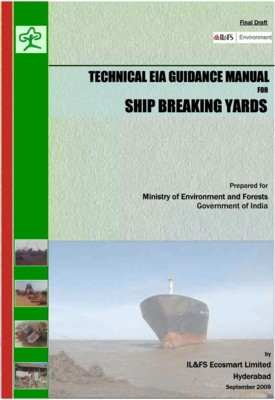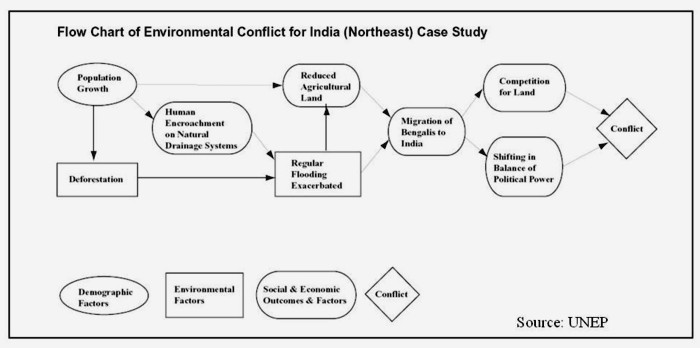/topics/rivers
Rivers
"In search of old ideas" - A discussion of the draft national water policy 2012, by Jayanta Bandopadhyay in The Telegraph
Posted on 22 Feb, 2012 05:05 PMAuthor: Jayanta Bandopadhyay
Article and image courtesy: The Telegraph
Rural water access: Governance and contestation in a semi-arid watershed in Udaipur, Rajasthan: A paper in EPW
Posted on 21 Feb, 2012 05:19 PMStudy area
This study is carried out in micro-watershed No.19, which comprises six villages in Jhadol tehsil of Udaipur district in Rajasthan. A minor irrigation project completed in 1980 serves these six villages
Rainfall, storage levels in reservoir and groundwater use
Towards greener development: EIA sector specific manuals brought out by the Ministry of Environment and Forests
Posted on 19 Feb, 2012 07:20 PMThese manuals are aimed at expert appraisal committees, and hope to improve the quality of appraisal of projects. These will also provide a template for use by organisations and consultants developing the EIA reports.
The status of glaciers in the Hindu Kush-Himalayan region - A report by the ICIMOD
Posted on 17 Feb, 2012 03:00 PMThe HKH region is one of the most dynamic, fragile, and complex mountain systems in the world as a result of tectonic activity and the rich diversity of climates, hydrology, and ecology. The high Himalayan region is the freshwater tower of South Asia and has the highest concentration of snow and glaciers outside the polar regions giving it the name Third Pole.
Balati glacier, Pithoragarh district, Uttarakhand (Source: Uttarakhand and I)
"Water management in Mumbai: Prospects and challenges" - Videos from a round table organised by Observer Research Foundation
Posted on 16 Feb, 2012 03:51 PMThese four films include details of speeches made by the Municipal Commissioner of Brihan Mumbai Municipal Corporation (BMC), Mr Swadhin Kshatriya, who delivered a valedictory speech and Mr Sandeep Acharya, senior journalist from Loksatta, who expressed his views on the water crisis in Mumbai, as a part of a round table organised by Observer Research Foundation (ORF), on "Water management in Mumbai: Prospects and challenges", on the 10th of January 2010.
Multi-stakeholder dialogue is messy, but necessary
Posted on 16 Feb, 2012 01:32 PMA workshop on ‘Understanding and resolving water conflicts in the North East India', was organized by Forum for Policy Dialogue on Water Conflicts in India (Forum), in collaboration with Aaranyak (Guwahati), Centre for the Environment, IIT (Guwahati), Arghyam (Bangalore), SaciWATERs-CapNet Network (SCaN) and Cap-Net to discuss emerging issues related to water conflicts and their resolution in the region. This workshop was held in Guwahati on January 23-26, 2012. It aimed at presenting concepts and theory related water conflicts as well as issues especially relevant to the North East Region.

"Understanding and resolving water conflicts in the North East": Workshop held at Guwahati, 23-26 January 2012
Posted on 16 Feb, 2012 01:31 PMGuest post by: Raju Mimi
Climate change in the Hindu Kush-Himalayas -The state of current knowledge - A book by ICIMOD
Posted on 16 Feb, 2012 01:10 PMThe Hindu Kush-Himalayan region has had very few resources to develop a detail scientific understanding needed to assess climatological, environmental, and other data in the past and there is very little information upon which a baseline for comparison with the present can be formed and future impacts can be anticipated.
Climate change adaptation in Himachal Pradesh - Sustainable strategies for water resources - A report by the ADB
Posted on 16 Feb, 2012 10:29 AMIt includes the present and planned water utilisation across sectors and uses, within a framework of environment, conservation and sustainability. It also examined the present institutional arrangements for water resources management and assessed the requirements for institutional development, improvement in data collection and analysis, catchment and agriculture planning, and other reforms required to ensure sustainable water resources management.
Climate: Observations, projections and impacts - India - A report by the Met Office (UK)
Posted on 15 Feb, 2012 03:25 PMThis was done as a part of a project that aimed at compiling scientifically robust and impartial information on the physical impacts of climate change for more than 20 countries.





